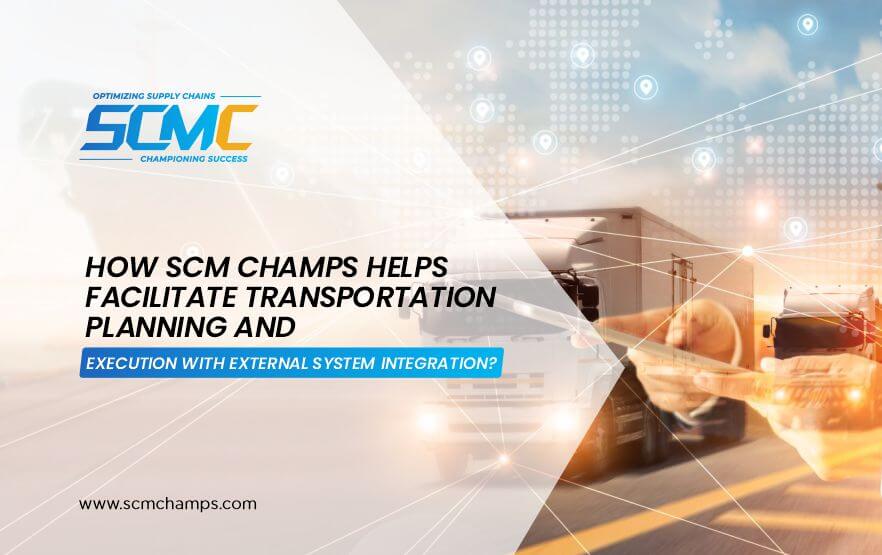
Overview
In today’s fast-paced business environment, transportation planning and execution plays a critical role in ensuring the on-time delivery of goods and services. Fortunately, companies use Supply Chain Management (SCM) Champs to consolidate purchase orders and shipments from external source systems such as SAP ERP and external SAP S/4HANA systems and streamline operations in Transportation Management (TM). Transportation planning and execution can be facilitated.
Integration Functionality
Here’s a closer look at how external system integration functionality works with SAP ERP to streamline transportation planning and execution:
1. Collective Transportation Planning
By integrating SAP ERP orders and deliveries into TM, you can collectively plan transportation for all orders across order types, providing a more efficient and effective approach to transportation management.
2. Early Forecasting of Future Transportation Demands
Performing transportation planning in TM based on SAP ERP orders prior to delivery creation enables you to get an earlier forecast of future transportation and resource demands, allowing you to proactively adjust transportation plans.
3. Tendering, Subcontracting, and Execution:
Integration with SAP ERP allows you to perform tendering, subcontracting, and execution in TM based on SAP ERP orders prior to delivery creation, ensuring smoother and more streamlined transportation management.
4. Delivery Proposals:
TM can generate proposals for deliveries to be created in SAP ERP based on order-based transportation requirements, providing greater flexibility and control over transportation planning and execution.
5. Dangerous Goods Checks:
If a product contained in an order or delivery is classified as dangerous goods, TM considers this information to ensure safe and compliant transportation of the product.
Here are Some Key Features of the Integration Between SAP ERP and TM:
1. Order Integration:
Orders created in SAP ERP can be transferred to TM, where they are stored as order-based transportation requirements. The following types of orders are supported by integration with TM:
– Sales order
– Customer returns
– SD scheduling agreements
– Purchase order
– Stock transport order
– Returns purchase order
– Returns stock transport order
– MM scheduling agreements
2. Delivery Integration:
Outbound and inbound deliveries created in SAP ERP can be transferred to TM, where they are stored as delivery-based transportation requirements, regardless of whether the delivery creation was triggered by TM or not.
3. Order Scheduling:
Transportation scheduling can be done synchronously in TM while creating sales orders in SAP ERP, providing greater accuracy and efficiency in transportation management.
4. ERP-TM Communication:
Order and delivery data can be transferred between TM and SAP ERP using enterprise services.
By engaging SAP SCM Champs SAP consulting company, you can leverage their expertise to seamlessly integrate S/4 HANA with shipping software like UPS WorldShip, FedEx Ship Manager, and others. This integration enables you to automate and streamline your shipping processes, reduce manual effort, improve data accuracy, and enhance overall operational efficiency.


